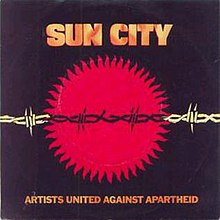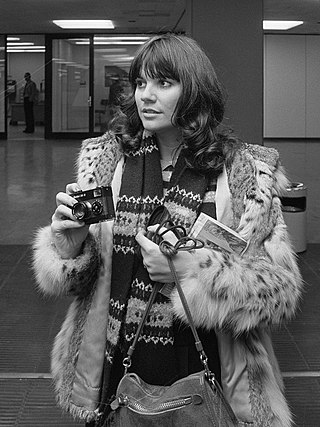
Linda Maria Ronstadt is an American singer who performed and recorded in diverse genres including rock, country, light opera, the Great American Songbook, and Latin music.
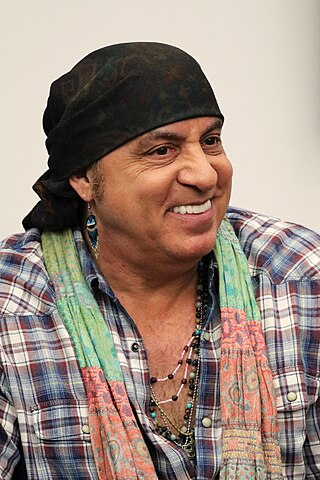
Steven Van Zandt, also known as Little Steven or Miami Steve, is an American musician and actor. He is a member of Bruce Springsteen's E Street Band, in which he plays guitar and mandolin. He has appeared in several television drama series, including as Silvio Dante in The Sopranos (1999–2007) and as Frank Tagliano in Lilyhammer (2012–2014). Van Zandt has his own solo band called Little Steven and the Disciples of Soul, intermittently active since the 1980s.
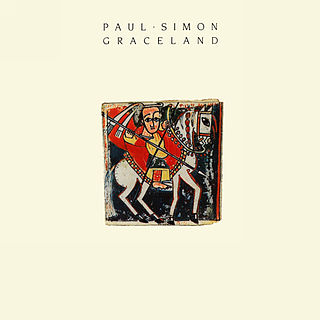
Graceland is the seventh solo studio album by the American singer-songwriter Paul Simon. It was produced by Simon, engineered by Roy Halee and released on August 25, 1986, by Warner Bros. Records. It features an eclectic mixture of genres, including pop, rock, a cappella, zydeco, isicathamiya and mbaqanga, inspired by the music of South Africa.
Lone Justice was an American country rock band formed in 1982 by guitarist Ryan Hedgecock and singer Maria McKee in Los Angeles. The band released two albums, Lone Justice in 1985 and Shelter the following year, before disbanding in 1987.

Sun City is a luxury resort and casino, situated in the North West Province of South Africa. It is located between the Elands River and the Pilanesberg, about 140 km northwest of Johannesburg, near the city of Rustenburg. The complex borders the Pilanesberg National Park. It is made up of a number of themed sub-resorts with hotels on each, including the original Sun City Resort, The Cabanas, The Cascades and the Lost City.

"Bonzo Goes to Bitburg" is a protest song by American punk rock band the Ramones. It was issued as a single in the UK by Beggars Banquet Records in mid-1985. The song is an emotionally charged commentary on the Bitburg controversy from earlier that year, in which U.S. president Ronald Reagan had paid a state visit to a German World War II cemetery and gave a speech where numerous Waffen-SS soldiers were buried. Lyrically, the song was a departure from the usual Ramones topics. While not commercially successful, it was critically well received.
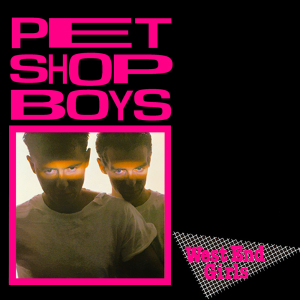
"West End Girls" is a song by English synth-pop duo Pet Shop Boys. Written by Neil Tennant and Chris Lowe, the song was released twice as a single. The song's lyrics are concerned with class and the pressures of inner-city life in London which were inspired partly by T. S. Eliot's poem The Waste Land. It was generally well received by contemporary music critics and has been frequently cited as a highlight in the duo's career.
Artists United Against Apartheid was a 1985 protest group founded by activist and performer Steven Van Zandt and record producer Arthur Baker to protest against apartheid in South Africa. The group produced the song "Sun City" and the album Sun City that year, which is considered a notable anti-apartheid song.

"Just the Way You Are" is a song by Billy Joel from his fifth studio album The Stranger (1977), released as the album's second single in early November 1977. It became both Joel's first US Top 10 and UK Top 20 single, as well as Joel's first Gold single in the US. The song also topped the Billboard Easy Listening Chart for the entire month of January 1978.

Animal Boy is the ninth studio album by the American punk rock band Ramones, released through Sire Records on May 19, 1986. Due to conflicts within the group, the album features less of lead singer Joey Ramone, both in performing and writing, and less performing from guitarist Johnny Ramone. Bassist Dee Dee Ramone wrote and sang more on this album than on previous albums, and Richie Ramone became the first drummer to write songs for the band since Tommy Ramone, the band's original drummer. Richie also wrote for Too Tough To Die (1984). The album spawned four singles, all of which charted on the UK Singles Chart, as well as other charts. In addition to singles, the band promoted their album using a music video for "Something to Believe In", which parodied the contemporary benefit concerts Live Aid and Hands Across America.

Daniel Isaac "Danny" Schechter was an American television producer, independent filmmaker, blogger, and media critic. He wrote and spoke about many issues including apartheid, civil rights, economics, foreign policy, journalistic control and ethics, and medicine. While attending the London School of Economics in the 1960s Schechter became an anti-apartheid activist and made trips to South Africa on behalf of the African National Congress (ANC). Later he would help musician Steven Van Zandt assemble other performers to form Artists United Against Apartheid who released the album Sun City in 1985. Schechter produced and directed six nonfiction films about Nelson Mandela from the time Mandela was a political prisoner to his election and service as President of South Africa.
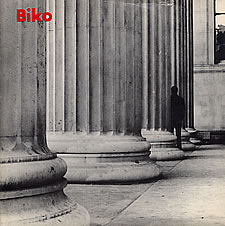
"Biko" is an anti-apartheid protest song by English rock musician Peter Gabriel. It was released by Charisma Records as a single from Gabriel's eponymous third album in 1980.

Freedom – No Compromise is the third solo studio album by Little Steven, released in May 1987 by EMI.

"You're No Good" is a song written by Clint Ballard Jr., first performed by Dee Dee Warwick for Jubilee Records in 1963 with production by Jerry Leiber and Mike Stoller. It has since been covered by many artists, including charting versions by Betty Everett in 1963, The Swinging Blue Jeans in 1964, and Linda Ronstadt in 1974, whose version was a number 1 hit in the United States.

Sun City is the first and only album by Artists United Against Apartheid, released on October 25, 1985, by EMI Manhattan Records. The Little Steven-led project features contributions from more than 50 artists from the rock, hip hop, soul, funk, jazz, reggae, latin, and world music genres. The album contains two versions of the "Sun City" protest song against apartheid in South Africa as well as other selections in the same vein from that project.
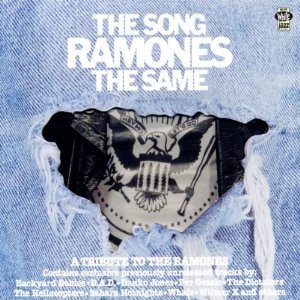
The Song Ramones the Same is a tribute album done by various artists as a tribute to the Ramones. The title is a reference to the multiple works of Led Zeppelin entitled The Song Remains the Same. The album reached #15 on the Swedish albums chart, while the single "I Wanna Be Your Boyfriend" peaked just outside the top 40.
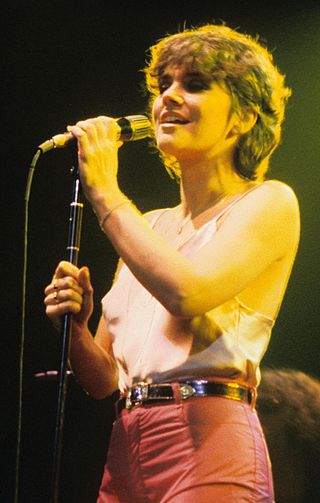
The singles discography of American singer Linda Ronstadt contains 80 lead and collaborative singles, four as a featured artist, eight promotional singles and eight other charted songs. Her first credited release was 1967's "Different Drum", which also included the Stone Poneys along with Ronstadt as a featured artist. Ronstadt's first pair of solo singles were released by Capitol Records in 1969. The 1970 release "Long, Long Time" was her first solo charting single. Her 1974 single "You're No Good" topped the US Hot 100, reached number seven in Canada and number 15 in Australia. Its B-side song "I Can't Help It " reached number two on the US Hot Country Songs list. It was followed by 1975's "When Will I Be Loved", which made the top ten on multiple charts in the United States and Canada, including topping their country surveys. It was followed by the US top five song "Heat Wave" and the US country top five song "Love Is a Rose".

Jean Beauvoir is an American singer, bassist, guitarist, multi-instrumentalist, songwriter, producer and entertainment executive. He came to prominence in the early 1980s with the punk group the Plasmatics and went on to work with Little Steven, Kiss, the Ramones and as a solo artist.

"Five Minutes" is a song by Jerry Harrison, Bootsy Collins and producer Daniel Lazerus, and credited to Bonzo Goes to Washington. It was released on the Sleeping Bag Records label in 1984.

The apartheid regime in South Africa began in 1948 and lasted until 1994. It involved a system of institutionalized racial segregation and white supremacy, and placed all political power in the hands of a white minority. Opposition to apartheid manifested in a variety of ways, including boycotts, non-violent protests, and armed resistance. Music played a large role in the movement against apartheid within South Africa, as well as in international opposition to apartheid. The impacts of songs opposing apartheid included raising awareness, generating support for the movement against apartheid, building unity within this movement, and "presenting an alternative vision of culture in a future democratic South Africa."
